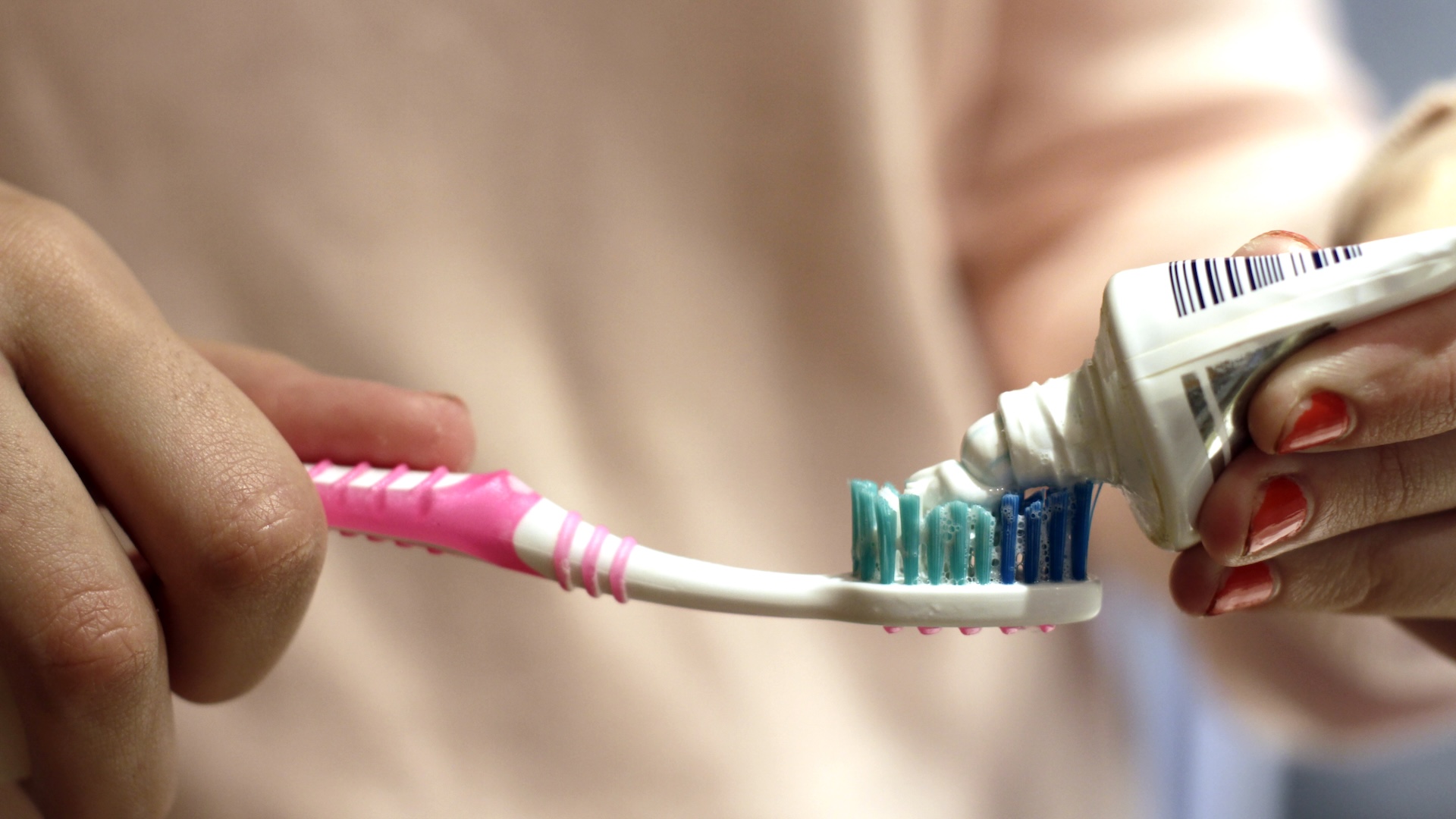Staff changes at the U.S. Centers for Disease Control and Prevention (CDC) ushered in changes in which populations were advised to get this year’s updated COVID-19 vaccine. People under age 65 faced confusion and uncertainty over whether they and their children were eligible for the 2025-2026 shot, where they could get it and whether their health insurance would cover the cost.
On Friday (Sept. 19), an influential CDC committee — the Advisory Committee on Immunization Practices (ACIP) — said that everyone over 6 months old can get this year’s COVID-19 vaccine and have the cost covered by insurance, provided they or their caregiver talk with their pharmacist or another health care provider about the shot’s risks and benefits.
Here’s what to know about the ACIP’s recommendation and what it might mean for people seeking the vaccine this year.
Related: Have you gotten this year’s COVID vaccine? (Poll)
Who is eligible for the updated COVID-19 shot?
The ACIP’s recommendations must now be approved by the CDC director, according to the CDC website. If they are approved, anyone above the age of 6 months will be eligible to get the 2025-2026 COVID-19 vaccine without a prescription and without a copay. This is true even if the individual seeking the vaccine does not have a health condition that puts them at higher risk for a severe COVID-19 infection.
The ACIP’s endorsement of the vaccine was a bit wishy-washy, rather than clear and straightforward. The committee said that anyone 65 and older may receive the COVID-19 vaccine in consultation with a medical provider, which could include a pharmacist. However, it emphasized that the decision to get the vaccine was “based on individual-based decision making … also known as shared clinical decision making.”
“In lieu of that full-throated endorsement, the ACIP has used that language in the past,” said Jason Schwartz, associate professor of public health at Yale School of Public Health. The committee has generally used the “shared decision making” language when it wasn’t comfortable making an unambiguous vaccine recommendation, he told Live Science.
But nonetheless, “for all individuals over the age of 6 months, this vaccine will remain on the CDC vaccination schedules, and be required to be included at no cost on private insurance plans,” Schwartz clarified.
For those between 6 months old and 64 years old, the ACIP’s recommendation was the same as for those over 65: individuals can get the vaccine in consultation with a medical provider, which could be a pharmacist.
The committee also said that health providers should discuss the risks and benefits of the vaccine with each individual. This includes reviewing known risk factors for severe outcomes from COVID-19, such as age, prior infections, immunosuppression and other illnesses. (Those risk factors are listed lower down in this article.) Schwartz did note that this suggestion from the committee doesn’t carry advisory weight — it’s essentially the members sharing their thoughts.
The ACIP did not make any specific recommendations for pregnant people. That’s despite evidence presented to the committee about the risk of severe COVID-19 in infants under 6 months, who cannot get the vaccine themselves. Giving the vaccine in pregnancy provides protective antibodies to newborns to help bridge that gap.
Pregnant people are still eligible for the vaccine under the ACIP’s general recommendation.
Do you need to see a doctor or get a prescription to get the COVID-19 vaccine?
No and no.
During the ACIP meeting, some committee members suggested patients see their primary care provider, but other committee members expressed concern about a lack of access to clinicians and overburdening an already overloaded health care system.
ACIP member Dr. Cody Meissner, a pediatrics professor at Dartmouth Geisel School of Medicine, said he would have to wait a year to get an appointment with his internist. Another committee member, Catherine Stein, an epidemiologist and professor in the Department of Population and Quantitative Health at Case Western Reserve University, said the people who are most at risk for complications from COVID-19 are also those most likely to lack a PCP. Some 30% of Americans don’t have access to a PCP, Stein said.
The committee also considered whether to require a prescription for the COVID-19 vaccine, but ultimately voted against, so no prescription will be required. The ACIP is only charged with vaccine recommendations, and the sentiments relating to requiring a prescription are “not within their purview,” Schwartz said, adding that the decision is made by experts within the CDC.
What are risk factors for severe COVID-19?
According to the CDC, these are factors that increase the risk of severe COVID-19:
- Asthma
- Blood cancers
- Blood disorders (including sickle cell disease)
- Cerebrovascular diseases
- Chronic kidney disease
- Some chronic lung diseases
- Some chronic liver diseases
- Cystic fibrosis
- Type 1 and 2 diabetes
- Gestational diabetes
- Disabilities, including Down syndrome, ADHD, autism, cerebral palsy
- Heart conditions
- HIV or tuberculous infection
- Mood disorders, including depression and schizophrenia
- Dementia or a neurologic condition
- Parkinson’s disease
- Obesity
- Physical inactivity
- Chronic liver disease
- Kidney disease
- Current or recent pregnancy
- Primary immunodeficiencies
- Tuberculosis
- Current or former smoking
- Substance use disorder
- Solid organ or blood stem cell transplant recipients
- Use of immunosuppressive drugs
Are any states diverging from the federal recommendations?
Yes. That said, the ACIP’s recommendations were expected to be more restrictive, based on earlier changes by the CDC. Now the state-level guidance does not differ dramatically from the federal.
Earlier in September, California, Oregon, Washington and later, Hawaii established the West Coast Health Alliance, a regional partnership created to uphold scientific integrity in public health recommendations on issues like vaccine recommendations and infectious-disease management.
The West Coast Health Alliance released recommendations on Wednesday (Sept. 17) that the COVID-19 vaccine be given to healthy children ages 6 months to 2 years old, and to pregnant women. For children ages 2 to 18, the alliance recommended weighing a child’s personal risk level for severe COVID-19 to determine whether they’d benefit from a vaccine.
The West Coast Health Alliance also recommended that anyone who is aiming to become pregnant, is pregnant, has just given birth or is lactating get the vaccine. Everyone ages 65 and older; everyone under 65 with risk factors; all those who are in close contact with others with risk factors; and all people who want to protect themselves against severe COVID-19 should also get the vaccine, the alliance says.
Related: CDC committee votes to change measles vaccine guidance for young children
Additionally, on Thursday, seven Northeastern states announced they had formed the Northeast Public Health Collaborative to promote and protect evidence-based public health by collaborating on issues such as vaccine recommendations and infectious disease management. The coalition comprises Maine, Massachusetts, Rhode Island, Connecticut, New Jersey, Pennsylvania, Maryland, Delaware, Vermont and New York, as well as New York City, specifically.
The Northeastern coalition announced Thursday its recommendations for who should get a COVID-19 shot based on guidelines from the American Academy of Pediatrics (AAP), the American College of Obstetrics and Gynecology and the American Academy of Family Physicians (AAFP). These guidelines recommend that all children ages 6 to 23 months get a vaccine, along with all adults ages 19 and up.
It also specifies groups of kids ages 2 to 18 years old who should be vaccinated, while other children in that age range may be vaccinated, if desired by the caregiver.
Who can benefit from an updated COVID-19 shot, based on scientific data?
All people 6 months and older can benefit from the 2025-2026 COVID-19 shot. That especially goes for young children under 1 year and adults over 65, Dr. Pamela Rockwell, a clinical professor of family medicine at the University of Michigan Medical School told Live Science. Historical data show those groups are most at risk of hospitalization for severe COVID-19.
Gina Koch, a board-certified family nurse practitioner in Missouri, said she’d like everyone who wants a vaccine to get one.
Can uninsured people get the vaccine?
Yes. Uninsured people can get a vaccine in consultation with their medical provider or pharmacist, if the new ACIP recommendations are adopted.
“The answer is always, ‘Yes, but talk to your health care provider,'” said Koch, who is also an associate professor and director of graduate studies in Nursing at Southeast Missouri State University.
Where can people get the updated COVID-19 shot?
In addition to their local pharmacy, people can get a COVID-19 vaccine at their local health department or possibly from their PCP, said Koch.
Local health departments “often will get vaccines before or at the same time pharmacies do,” said Koch, who works in a rural health clinic as part of her state’s health department. She noted that some states or counties will provide vaccines to anyone who wants them, as long as they’re not contraindicated — meaning the person can’t get a given vaccine due to an existing health issue, for instance.
“There are two counties south of here where they’re requiring a prescription from your PCP [primary care provider],” she added. So in some cases, individuals may need to first speak to their PCP to get access to a COVID-19 vaccine at their local health department.
Some state or local health departments offer free vaccine clinics to people from all financial backgrounds, she added. Residents can check their local newspapers or TV stations for health departments’ advertisements saying when they’re holding vaccine clinics.
How can people check whether insurance will pay for COVID-19 shots in their state?
They should contact their insurance carrier, Rockwell said. If the CDC approves the ACIP’s recommendations, insurance companies will be required to pay for the shot.
As of Sept. 16, Blue Cross Blue Shield said its current vaccine coverage aligns with the most recent recommendations from multiple medical groups and includes COVID-19 vaccines, a spokesperson told Live Science in an email. The company bases its coverage decision on the recommendations made by professional associations such as the AAFP and AAP, as well as the CDC’s ACIP.
Aetna CVS Health provides coverage for approved vaccines, including COVID-19 shots, in compliance with applicable state and federal cost-sharing requirements, a spokesperson told Live Science in an email. Its members who are eligible may be vaccinated against COVID-19 at no out-of-pocket cost to them.
In addition, state pharmacy laws govern where CVS Pharmacy can vaccinate, a spokesman said via email. Based on Food and Drug Administration (FDA) approval and recent regulatory action by certain states, CVS Pharmacy currently can offer COVID-19 vaccines in 43 states without a prescription from an outside provider, not including the following: AZ, DC, FL, GA, LA, OR, UT and WV. If the ACIP recommendations are approved, a prescription will no longer be required for the vaccine in those last seven states.
This article is for informational purposes only and is not meant to offer medical advice.














